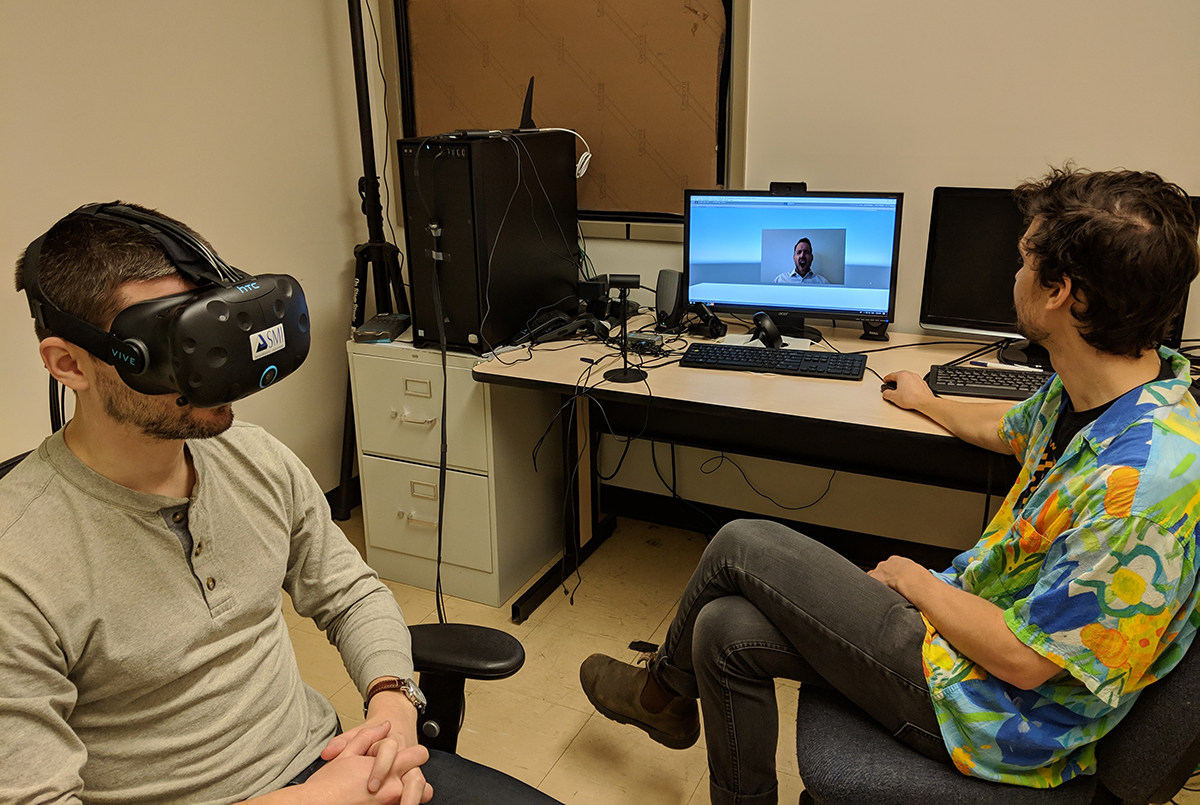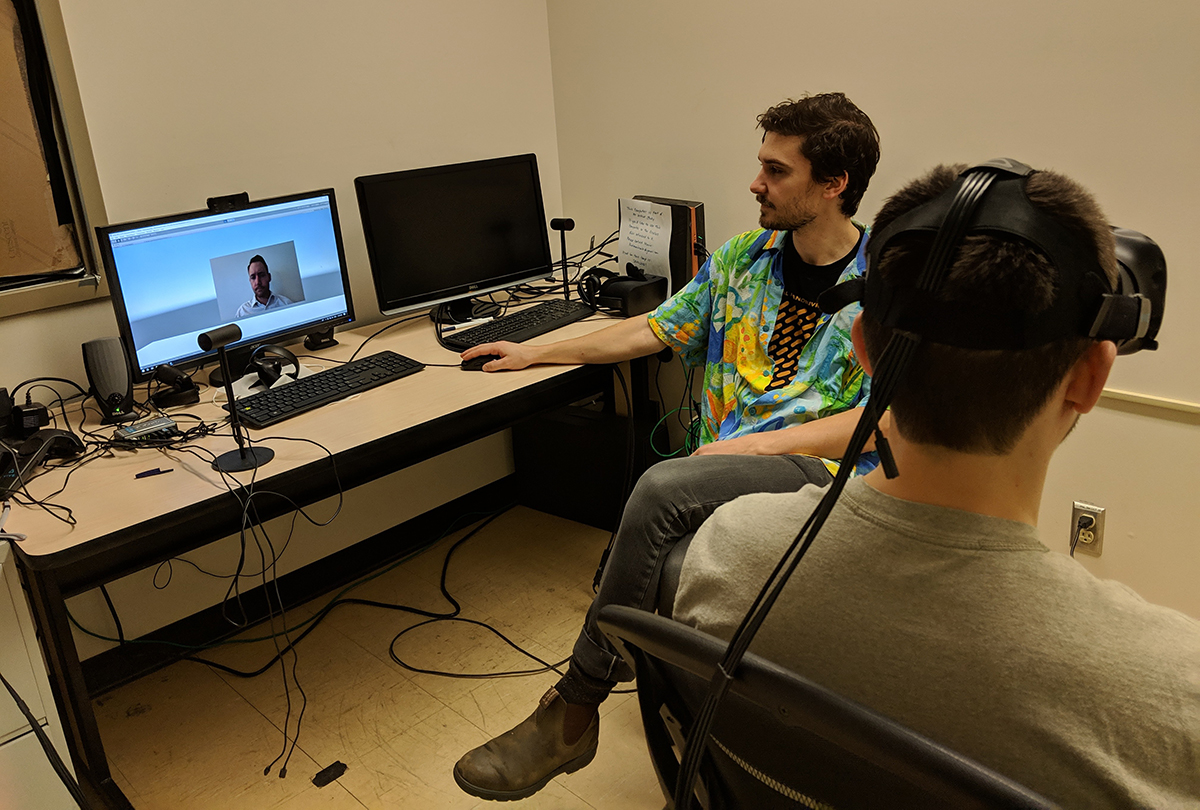New research by UBC highlights the similarities and differences in the way people interact in VR versus the real world.
Contagious yawning is a well-documented phenomenon in which people – and even some non-human animals – yawn reflexively when they detect a nearby yawn. Another aspect of this is that when people are in company, the presence of others also causes most of us supress that reflex (or at least try to).
So when studying the psychological effects of being immersed and interacting with others while immersed in virtual reality, researchers at the University of British Columbia decided to use yawning patterns as a benchmark to compare people’s behaviours in real-world, face-to-face interactions as opposed to VR. And as often happens with such research – especially in what is still a relatively new field – the results were mixed and somewhat surprising.
To instigate contagious yawning in a VR environment, the team from UBC, along with Andrew Gallup from State University of New York Polytechnic Institute, had test subjects wear a VR headset and exposed them to videos of people yawning. In those conditions, the rate of contagious yawning was 38%, which is in line with the typical real-life rate of 30-60%.
However, when the researchers introduced social presence in the virtual environment, they were surprised to find it actually had limited impact in terms of yawning. Subjects yawned at the same rate, even while being watched by a virtual human avatar or a virtual webcam. It was an interesting paradox: stimuli that trigger contagious yawns in real life did the same in virtual reality, but stimuli that suppress yawns in real life did not.
The presence of an actual person in the testing room had a more significant effect on yawning than anything in the VR environment. Even though subjects couldn’t see or hear their company, just knowing a researcher was present was enough to diminish their yawning; social cues in reality therefore appeared to dominate and supersede those in virtual reality.
“People expect VR experiences to mimic actual reality and thus induce similar forms of thought and behaviour,” said Alan Kingstone, a professor in UBC’s department of psychology and the study’s senior author. “This study shows that there’s a big separation between being in the real world, and being in a VR world.”

Image Credit: University of British Columbia
These results come as no surprise, as we’re of course consciously aware that what we experience in VR is different and separate from our experience of reality itself. However, there have also been numerous studies that show how psychological effects experienced virtually can carry on to our off-world behaviour.
According to the study, as VR becomes an increasingly popular research tool in psychology and other various other professional fields, these findings show that researchers also need to account for its limitations.
“Using VR to examine how people think and behave in real life may very well lead to conclusions that are fundamentally wrong. This has profound implications for people who hope to use VR to make accurate projections regarding future behaviours,” continues Kingstone. “For example, predicting how pedestrians will behave when walking amongst driverless cars, or the decisions that pilots will make in an emergency situation. Experiences in VR may be a poor proxy for real life.”

Image Credit: University of British Columbia
If that gap between VR and real life could be closed, scientists would be able to examine the link between the brain, behaviour, and the human experience in both reality and altered realities that span place and time, Kingstone added.
Scientific research like this is extremely welcome as we continue to navigate our way through these immersive technologies and our effects in our brains, but as is often the case, it leaves us with a lot more questions than answers. For example, would the use of better, more realistic avatars affect the subject’s sense of social engagement within the experience? We know that this aspect of meaningful social interaction is one of the most challenging aspects of developing the technology, which is probably why we haven’t seen a Facebook equivalent in the Social VR space emerge as yet. And all this probably means that we might be seeing a lot more exciting research about yawning in VR…
The post Scientists Use Yawning To Study Social Presence In VR appeared first on VRScout.
from VRScout http://bit.ly/2MA8V9b
via IFTTT
No comments:
Post a Comment